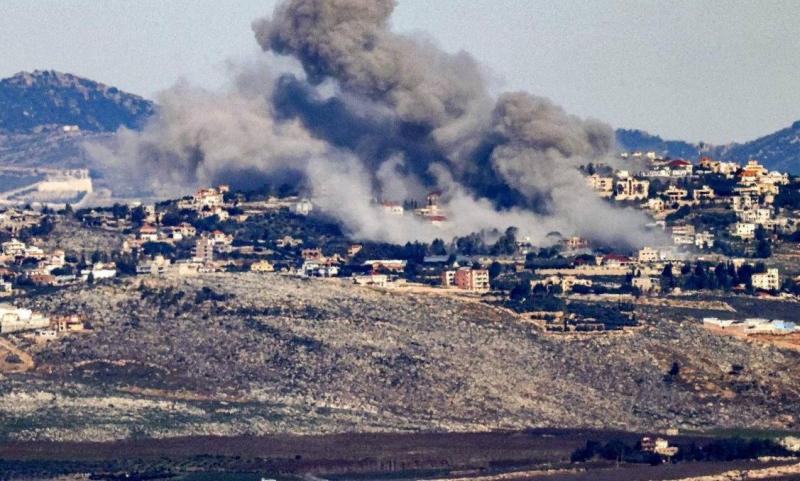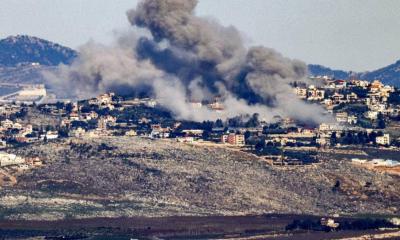Seventeen people were injured, including four in critical condition, from an Israeli bombardment targeting the town of al-Abbasiya in southern Lebanon, where clashes between Hezbollah and Israel continue. On Wednesday, Israel used very heavy explosive rockets believed to be targeting Hezbollah tunnels, with the echoes of the explosions reaching deep into the south. Meanwhile, some airlines are moving to resume flights to Beirut after they were suspended on July 29 due to threats of escalation following the assassination of Hezbollah leader Fouad Shukr.
Air France announced in a statement that it intends to resume flights on Thursday, stating, "At this stage and depending on developments in the security situation at the final destination, the company plans to resume suspended flights between Paris Charles de Gaulle and Beirut as of Thursday, August 15, 2024." A spokesperson confirmed that "the decision also applies to Transavia France," and emphasized that "the continuation of operations will remain subject to daily assessment of the local situation." They reiterated that the safety of their customers and crews is "their absolute priority."
Several other airlines had previously suspended their flights to the Lebanese capital amid fears of a worsening military escalation between Israel and Hezbollah. Many embassies requested their nationals to leave Lebanon, causing a significant number of expatriates to cut short their vacations and return due to concerns about escalating conditions and the potential closure of the airport.
On the ground, confrontations continued on the southern front, where 17 people were reported injured, four of whom were in critical condition, as a result of an Israeli strike targeting a vehicle near the al-Abbasiya junction at the entrance to Tyre, according to the National News Agency, which reported that a number of injuries and significant damage to properties and nearby homes occurred.
The Public Health Emergency Operations Center, affiliated with the Ministry of Public Health, issued a statement declaring that the number of casualties from the strike reached seventeen, including four critical cases. Hezbollah responded to the attack in al-Abbasiya by targeting the colony of Kiryat Shmona with salvos of Katyusha rockets, as stated in their announcement.
Additionally, Israeli warplanes conducted a strike on the town of Aita al-Chaab in the Bint Jbeil district with two explosive rockets, the explosions of which echoed to the regions of Tyre and Nabatieh. This marks the second instance of such rockets being used, following the targeting of the town of Kfarkila on Tuesday. Israeli aircraft intensified their nighttime sorties, conducting mock raids over southern villages and firing incendiary shells at vegetation near the Blue Line, along with illuminating bombs over villages in the districts of Tyre and Bint Jbeil.
IDF spokesman Avichai Adraee stated via his account on the platform "X": "Air force jets struck a military building belonging to Hezbollah in the area of Aita al-Chaab in southern Lebanon." In contrast, Hezbollah ramped up its operations targeting military sites and gatherings of soldiers. In separate statements, they claimed that their fighters executed "an aerial attack with swarms of suicide drones on a newly established gathering of enemy soldiers north of Abireem," and shelled "the Al-Baghdadi site with rocket fire," along with attacks on the Zubdine barracks in the Shebaa Farms, and a gathering of Israeli soldiers in Harsh Shitola, targeting espionage equipment at the Metula site and a military gathering in Harsh Shitola.
This escalation comes as Hezbollah officials insist that a response to the assassination of their military commander Fouad Shukr is "coming," a point reaffirmed by Hezbollah bloc MP Ihab Hamadeh, stating: "The response to the crimes of the Israeli enemy is imminent and inevitable, and it will serve as a deterrent that will make this enemy think a thousand times before they attack us, especially as it faces an existential crisis and danger within occupied Palestine."




